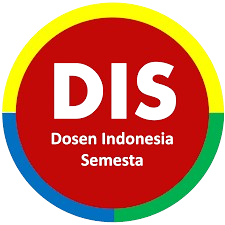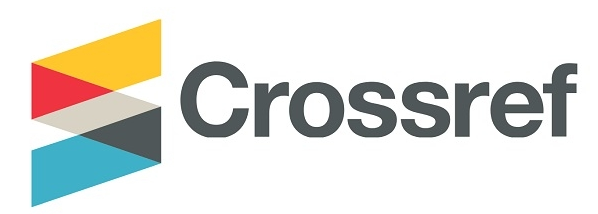The Influence of Narrow Reading on Reading Comprehension of the Eleventh Grade Students of SMAN 1 Srono in 2018/2019 Academic Year
DOI:
https://doi.org/10.36526/ln.v3i1.1378Keywords:
Narrow Reading, Reading ComprehensionAbstract
The use of approach or strategy in teaching and learning process was needed to help EFL students in developing their four skills in English. One of the skills that needs to be developed is reading because reading activities include many things, one of which is reading comprehension. The aim of the research was to find the significant influence of narrow reading on reading comprehension of elevent grade students of SMAN 1 Srono in 2018/2019 academic year. The research design was experimental research and the researcher used one group pre-test and post-test design. Before giving a treatment, the respondents were given a pretest. Then the treatment was carried out for 3 meetings. After that the respondents were given test again as post-test. The researcher used purposive sampling to determine the research area. The reasearch area was SMAN 1 Srono. There were 35 students of elevent science 3 as respondents. It was taken by purposive sample. The data was obtained by using multiple choice test. There were 20 questions about topics, moral value, the characteristics, plot of story, the purpose of narrative text and vocabulary, finding synonim and references. The results of T-test showed that there was significant influence on students’ reading comprehension abilities. The value of T-test was 6,674, while the value of T table at the significant level of 5% and degree of freedom 33 was 2,012. It means that the value of T-tes was higher than the value of T table (6,674 > 2,012). Therefore it can be concluded that the narrow reading had significant influence on reading comprehension of elevent grade students of SMAN 1 Srono in 2018/2019 academic year. Based on the results of T-test, the researcher suggested to the English teacher to apply the narrow reading approach in the reading class to make students are more interested and enjoyable to study. The other reseracher are suggested to do the same research with different grade students, school and research design and use the other genres. It is recommended to make experimental research using two group, experimental group and control group.
References
Al-Saadi, N. (2015). Importance of English Language in the Development of Tourism Management. Academic Journal of Accounting and Economics Researches , 4, (1, 33-45, 2015 ).
Basyari, A. (2013). Hubungan antar Minat dan Prestasi Belajar Sejarah dengan Kesadaran Sejarah Siswa MAN Yogyakarta III.
Bird, G., Briscoe, P., Freeman, R., Glazer, K., Henry, K., Hood, T., et al. (2012).Introduction to Tourism and Hospitality in BC. (M. Westcott, Ed.) Columbia: CC-BY license.
Camilleri, M. (2017). The Tourism Industry: An Overview.
Cherry, K. (2019, April 25). How Psychologists Define Attention. Retrieved May 15, 2019, from https://www.verywellmind.com.
Debele, E. T., &Kelbisa, E. M. (2017). The Role of active learning methods for classroom participation: The case of first year students of sociology in Samara University . IOSR Journal Of Humanities And Social Science (IOSR-JHSS) , 22(7), 12.
E. Maryani, E. N. (2017). Hospitality Skills of Homestay’s Hosts at CiletuhPalabuhanratu National Geopark, Indonesi. IOP Conf. Series: Earth and Environmental Science. IOP Publlishing.
Erazo, M. A., Ramríez, S. I., Encalada, M. A., Holguin, J. V., &Zou, J. H. (2019). English Language Skills Required by the Hospitality and Tourism Sector in El Oro Ecuador. Theory and Practice in language Studies, 9(2).
Firmani, S. H. (2009). The Correlation Between Students' Interest and Their Achievement in Learning English at the Second Year of SLTPN 1 Pamulang.
Harackiewicz, J. M., &Hulleman, C. S. (2010). The Importance of Interest: The Role Achievement Goals and Task Values in Promoting the Development of Interest. Social and Personality Psychology Compass.
Kelvin-Iloafu, L. E. (2016). The Role of Effective Communication in Strategic Management of Organizations.International Journal of Humanities and Social Science, 6.
Khotari, C. (2004). Research Methodology (Method and Techniques). New Delhi, India: New Age International (P) Ltd.
Latief, M. A. (2011). Reserach Method on Language Learning: An Introduction. Malang: UniversitasNegeri Malang (UM PRESS).
Lungit, D. D. (2014). The Relationship Between the Students' Interest in Learning English and Their Academic Achievement in SMP Barwijaya Smart School.
Maryani, E., Ningrum, E., Nandi, N., Yani, A., & Rosita, R. (2017).Hospitality Skills of Homestay’s Hosts at CiletuhPalabuhanratu National Geopark, Indonesia. IOP Conf. Series: Earth and Environmental Science. IOP Publishing.
Meriam Webster Dictionary.(2019). Meriam-Webster, Inc.
Oxford English Dictionary.(2007). Oxford University Press.
Prabhu, A., &Wani, P. (2015). A Study of Importance English Language Proficiency in Hospitality Industry and the Role of Hospitality Educators in Enhancing the Same Amongst the Students. Atithya: Journal of Hospitality, 1(1).
Prachanant, N. (2012). Need Analysis on English Language Use in Tourism Industry. Sciverse Science Direct.
Saswandi, T. (2014).Teaching Style and Students' Interest in Learning English. 17.
Slameto.(2015). BelajardanFaktor-faktor yang Mempengaruhinya. Jakarta: RinekaCipta.
Sugiyono. (2009). MetodePenelitianKuantitatif, Kualitatif, dan R&D. Bandung: Alfabeta.
The ASEAN Secretariat.(2016). ASEAN Homestay Standard. Jakarta: ASEAN Secretariat.
W, C., Barrows, Powers, T., & Reynolds, D. (2012).Introduction to Management in the Hospitality Industry. Canada: John Wiley & Sons, Inc.
Willingness to Learn - A Mighty Quality. (2017, October 18). Retrieved May 15, 2019, from https://blog.noplag.com.
World Tourism Organization.(2007). cf.cdn.unwto.org. Retrieved 12 07, 2018
Downloads
Published
How to Cite
Issue
Section
License
This work is licensed under a Creative Commons Attribution-ShareAlike 4.0 International License.


















